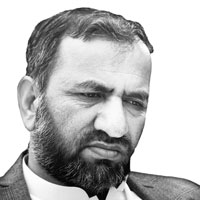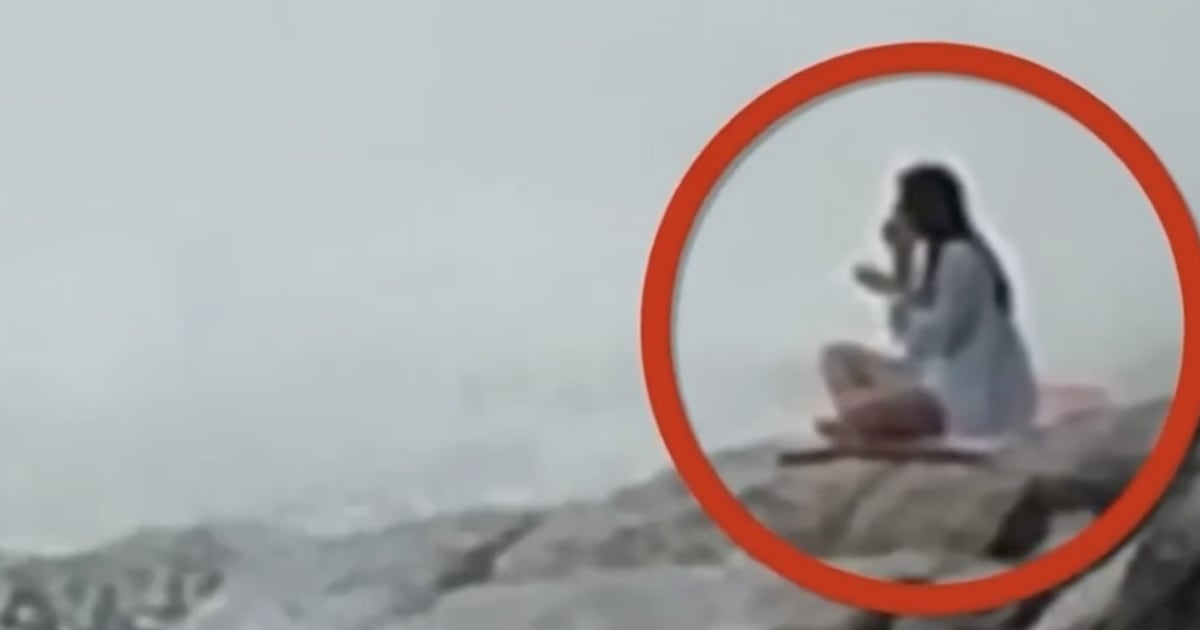ISLAMABAD—It’s been five long years since American Caitlin Coleman and her Canadian husband Joshua Boyle were taken hostage by a Taliban-affiliated group while they were hiking in Afghanistan. Caitlin was pregnant at the time, and while in captivity that boy and two more were born. But on Thursday, news came at last that all had been released.
“Words escape me in the joy I feel that Joshua, Cait, and the precious children have all been saved and will be returned home to be reunited with our families,” Boyle’s aunt, Kelli O’Brien, emailed The Daily Beast. “We never gave up in our prayers that one day they would come back home to their family that loves and missed them so dearly. Thank you to everyone involved in the rescue and those who helped to continue to give us hope during this unbelievable time. We must thank God for this most blessed mercy.”
But the precise how and why of the release, as so often in hostage cases, remains obscure.
ADVERTISEMENT
Even before official news of the family’s freedom came out on Thursday morning, President Donald Trump was hinting on Thursday night that his tough-guy approach to South Asia’s conflicts, outlined in his August 21 statement about strategy in Afghanistan, was showing results. “We can no longer be silent about Pakistan's safe havens for terrorist organizations,” he declared.
In a typical stay-tuned-for-the-next-episode remark, Trump told an audience in Harrisburg, Pennsylvania, on Wednesday night: "Something happened today where a country that totally disrespected us called with some very, very important news. And one of my generals came in, they said, you know, I have to tell you, a year ago they would have never done that. It was a great sign of respect. You'll probably be hearing about it over the next few days." He said nothing further about the country.”
An official statement out of the White House on Thursday morning, said “the United States government, working in conjunction with the Government of Pakistan, secured the release of the Boyle-Coleman family from captivity in Pakistan.
“Today they are free,” said the statement. “This is a positive moment for our country's relationship with Pakistan. The Pakistani government's cooperation is a sign that it is honoring America's wishes for it to do more to provide security in the region. We hope to see this type of cooperation and teamwork in helping secure the release of remaining hostages and in our future joint counterterrorism operations.”
But, every hostage situation is unique, and this one was as complicated as they come, according to sources close to the negotiations.
When White House Chief of Staff John Kelly was asked at a press briefing on Thursday afternoon about a supposed “raid” to liberate the Canadian-American family, he quickly demurred. “The good news is that the Pakistani authorities … took them into custody,” he said, after the family had “essentially been living in a hole for the last five years—that is the kind of people [the Taliban] we are dealing with.”
According to a source close to the talks with the Haqqani Network, the Taliban organization holding the family, about a year ago the United States and the Afghan government’s head of national security began a concerted effort to win the Boyle-Coleman family’s freedom, or perhaps lay the groundwork for a rescue operation.”
The model the Taliban had in mind was something similar to the release of American soldier Bowe Bergdahl in 2014, who was essentially traded for the liberation of five Taliban being held by the Americans at Guantanamo. (Bergdahl is now about to be court-martialed for deserting his post while deployed in Afghanistan.)
The source close to the negotiations says that a deal was near, with the Afghan government prepared to release nine out of 12 prisoners, and, according to this source, payment of a multi-million-dollar ransom (despite firm American policy not to pay, or even to negotiate with terrorists).
But the Afghan government refused to countenance the release of the prisoner most important to the Haqqani network, Anas Haqqani, son of Jalaluddin Haqqani, founder of the “network” that bears the father’s name, and brother of Sirajuddin Haqqani, the group’s operation commander. He faces a possible death sentence in Afghanistan.
Anas and another prominent Taliban figure known as Hafiz Rashid were picked up when they went to visit the Taliban released from Guantanamo in 2014.
“One of the the reasons [Afghan President Ashraf] Ghani did not sign the death penalty was because of the [Boyle-Coleman] couple being held hostage,” a senior advisor to Ghani told The Daily Beast.
“Due to the involvement of three children in the case, it was creating emotional and public pressure on the U.S. and Canadian government,” said a former Afghan jihad commander. This same source notes that Haqqani still has other American-national and Western hostages, so may believe he still has cards to play. “But I do not think the U.S. will really much care about the remaining hostages.”
The Daily Beast asked every relevant U.S. government entity—the White House, the State Department, the Pentagon, the U.S. military command in Afghanistan, its parent at U.S. Central Command and the FBI—whether the U.S. or its allies traded anything at all to the Haqqanis or their allies for the freedom of the Boyle-Coleman family.
Late on Thursday, the State Department denied any quid pro quo for the family’s release.
“The U.S. government did not provide anything to the Haqqanis. The Pakistani government, acting on information we provided, secured the family’s release,” a State Department spokesperson told The Daily Beast.
So, finally, how was the Boyle-Coleman family freed?
The Haqqani Network’s ties to Pakistan’s Inter-Services Intelligence organization, the ISI, have been reported extensively for years. Did that organization decide, at last, it was time to pressure its Haqqani contacts to release prize hostages? Maybe Trump is right, and his tough-guy posturing convinced them. Or, as often happens, will we see in the not so distant future that prisoners were indeed released? If so, all the governments concerned will swear there was no connection.
Such is the cynical business of kidnap and ransom. But for now, the news is good.
—with additional reporting by Spencer Ackerman in New York. Updated Friday 10/13 to add State Department comment.







